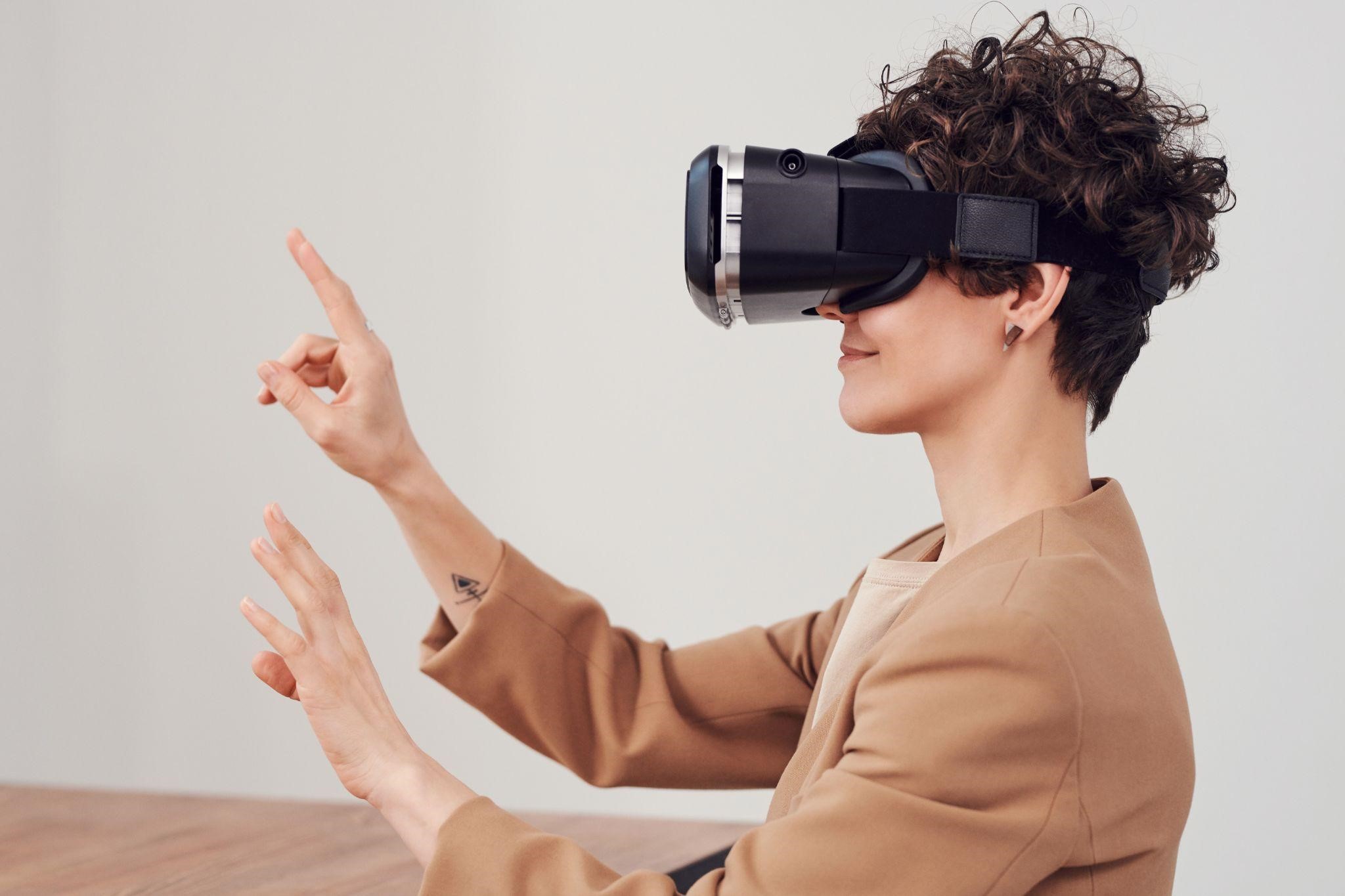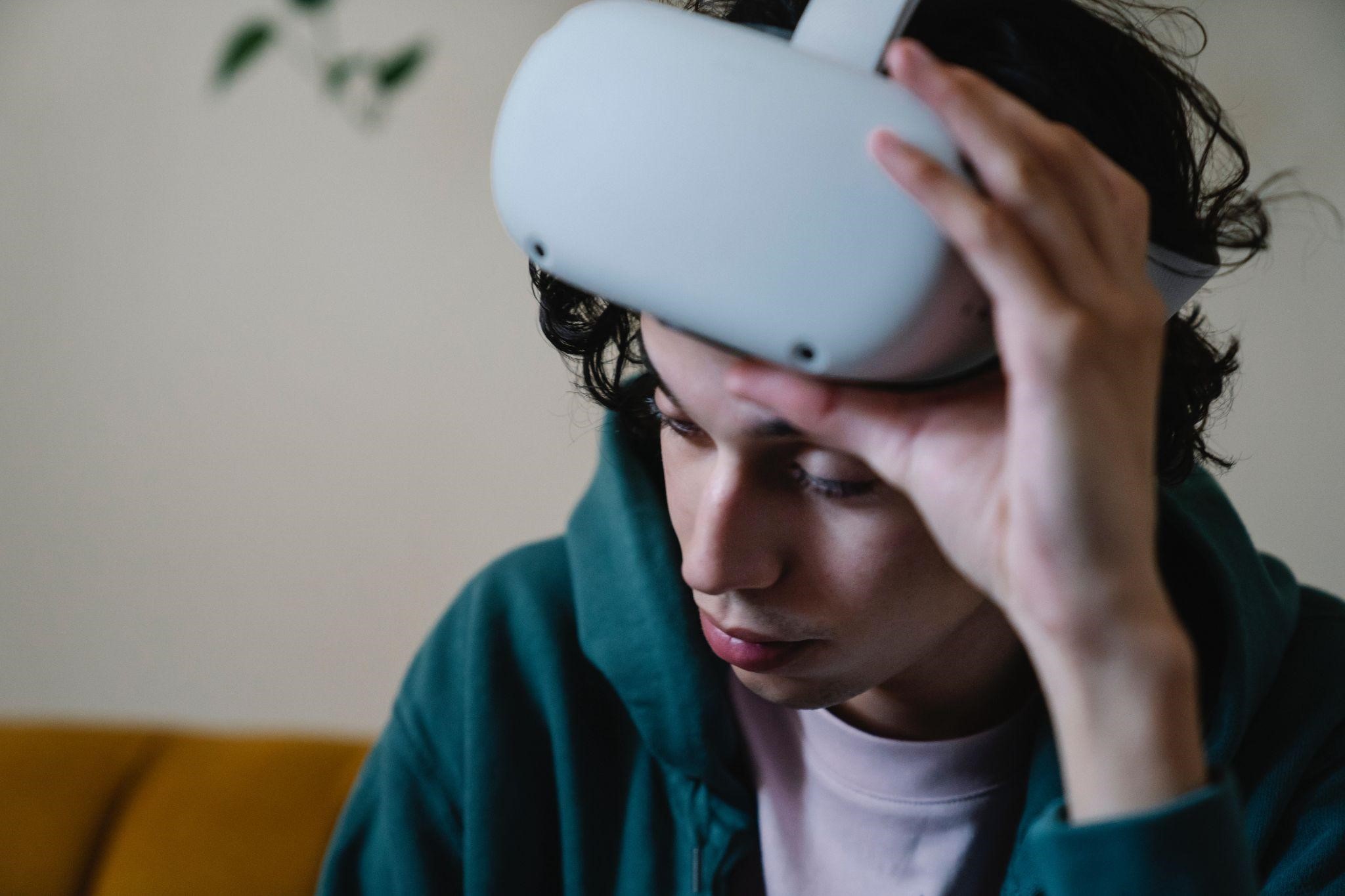Can virtual reality be used to treat substance use disorders?
Published October 2022
By Lauren DeSouza- Master of Public Health, Simon Fraser Public Research University – Canada
https://sudrecoverycenters.com/our-team/
Staff Research and Content Writer
© Copyright – SUD Recovery CENTERS – A Division of Genesis Behavioral Services, Inc. Milwaukee, Wisconsin – October 2022 – All rights reserved.
Technological advancements are generating innovative solutions to help us treat health challenges. Virtual Reality (VR) is a key example of this. VR uses technology to create an immersive and interactive simulation of reality. It enables individuals to experience computer simulated scenarios that look, sound, and even feel real.

Image via Fauxels on Pexels
VR programs can stimulate physical and psychological responses. These responses can be measured by changes to our stress hormones, heart rates, and other biological states. VR therapy uses these tools to help treat a variety of psychological disorders including Post-Traumatic Stress Disorder (PTSD), phobias, and anxiety. VR therapy may also be an effective treatment for Substance Use Disorders (SUDs).
A new study reviewed existing literature to determine the effectiveness of VR therapy on several aspects of SUD behavior.
What is Virtual Reality Therapy?
Virtual Reality (VR) therapy uses technology to simulate situations to help people work through trauma, fears, and anxiety. Patients can practice working through difficult situations that are hard to treat in real world settings, for example phobia of flying or PTSD.
VR therapy is also now being used to treat patients with SUDs. In this approach to VR therapy, patients are put into scenarios that induce cravings for substance use. Patients can then practice handling those cravings and withstanding pressure to use substances.
One type of VR therapy for SUDs uses a cue-exposure intervention, where patients interact with environments that are designed to induce substance cravings. Then, they can work through the cravings with their therapist. This practice helps patients build confidence and self-efficacy in their ability to withstand cravings and remain substance- free.
Another type of VR therapy is the approach-avoidance intervention. This technique presents patients with two types of scenarios, one to approach and one to avoid. This helps reinforce a positive behavior and downplay a negative one. For example, in a smoking cessation intervention, participants were presented with smoking‐related and non‐smoking‐related cues and instructed to grasp all non‐smoking‐related objects and avoid all smoking‐related objects.
VR therapy can also help with mindset work and build coping skills. This treatment guides patients through mindfulness activities, guided movement, and breathing techniques. Mindfulness can help patients learn to sit with cravings and discomfort and to build resilience.
Is Virtual Reality Therapy effective for treating substance use disorders?
This new study systematically reviewed existing literature on VR therapy for substance use. The researchers were interested in knowing if VR therapy could reduce cravings for substances, help patients quit a substance, and help with substance- related mood symptoms.
Based on their search criteria, the researchers found seven studies. Of note, the researchers only looked at studies in which patients wore VR headsets, which may explain why they found so few studies.

Image via Eren Li on Pexels
This study found that VR therapy successfully decreased cravings and urges for substances in the studies. In several included studies, there was a decrease in the number of cigarettes smoked by patients participating in VR therapy. Another study found that VR patients quit smoking at higher rates compared to standard (non-VR) treatment. One study in patients with opioid use disorder also found that VR therapy decreased opioid cravings.
The researchers concluded that VR therapy successfully reduces cravings and urges for patients with SUDs.
Are there other benefits of using Virtual Reality therapy for substance use treatment?
The researchers were also interested in seeing whether VR therapy can help address co-occurring mental health and substance use disorders.
Over half of people with SUDs have co-occurring mental health disorders, most commonly anxiety and depression. Having both of these conditions together can increase the amount and severity of symptoms and makes both more challenging to treat.
Thus, there is a need for SUD treatments that also address co-occurring mood and anxiety disorders. The researchers were curious if VR therapy could pose benefits for those with co-occurring disorders.
In this review, the researchers did not find much evidence to support this hypothesis. Only one study found benefits for mental health disorders. In the study on patients with opioid use disorder, patients reported significantly lower anxiety and depression symptoms after VR treatment. Other studies reported minimal or no benefits of VR treatment on patients’ mental health symptoms.
Based on these results, the researchers hypothesize that VR therapy geared toward reducing substance use cravings may not be sufficient to also address mood and anxiety disorders. They suggest combining treatments such as cue-exposure therapy with other treatments, for example counseling, to treat patients with comorbid mental health and SUDs.
What are the takeaways?
Overall, the findings of this study suggest that virtual reality therapy can be used to reduce cravings and urges among people with substance use disorders. To treat patients with comorbid substance use and mental health conditions though, VR therapy should be combined with other mental health treatments. The researchers conclude that VR therapy is beneficial for patients with substance use disorders.
References
Taubin D, Berger A, Greenwald D, Greenwald H, Burke C, Gongora DS, Wilens T. A systematic review of virtual reality therapies for substance use disorders: Impact on secondary treatment outcomes. Am J Addict. 2022 Sep 20. doi: 10.1111/ajad.13342.
What Is Virtual Reality Therapy? The Future of Psychology. 4 Nov 2020 by Jeremy Sutton, Ph.D. Positive Psychology. https://positivepsychology.com/virtual-reality-therapy/
